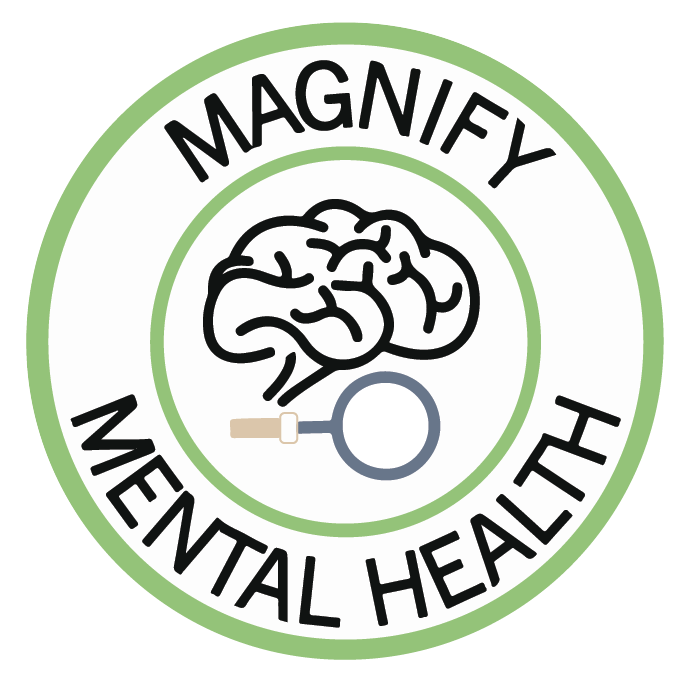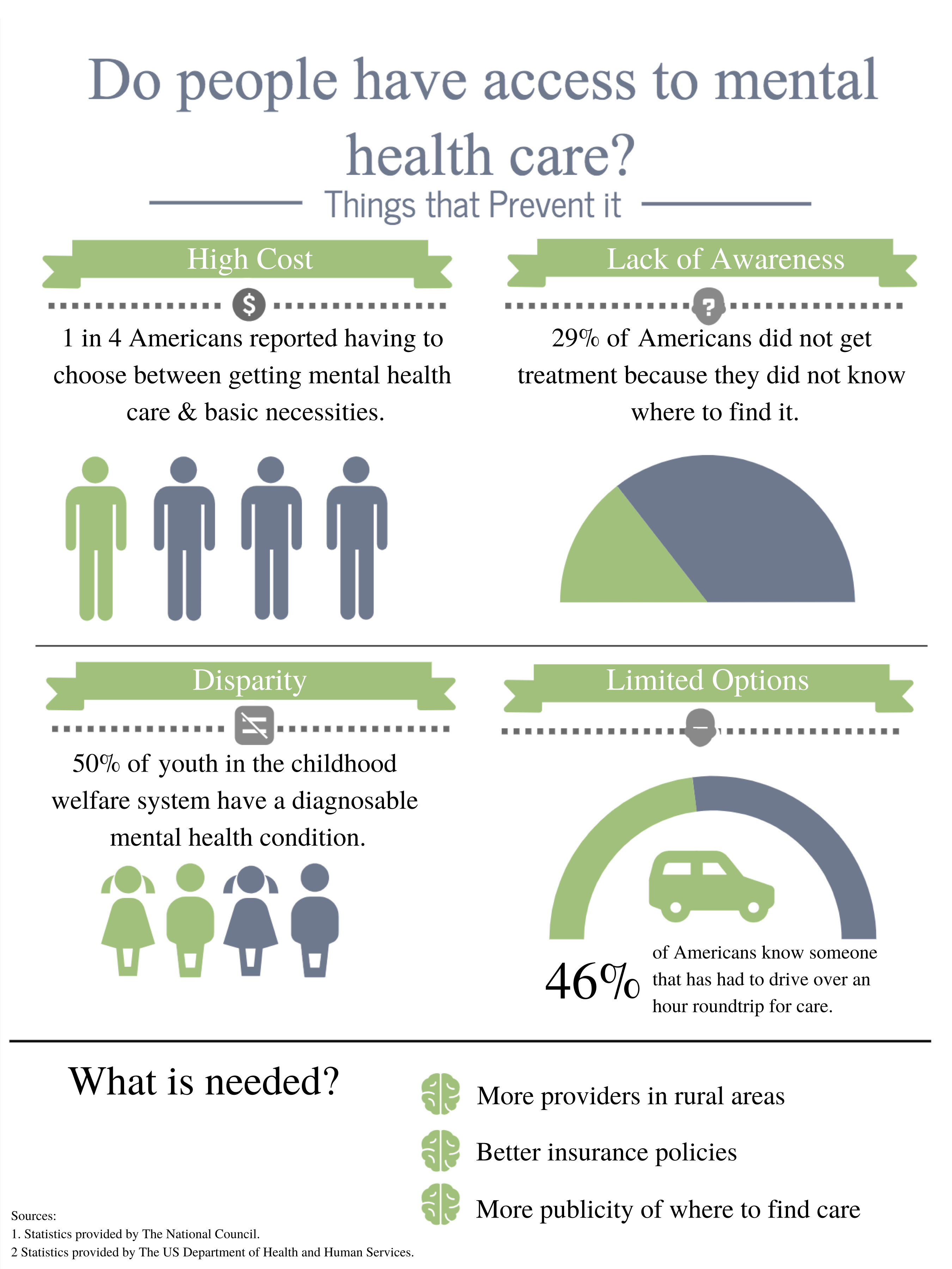Access to Care
Not everyone has the same access to or knowledge about care for mental health conditions. People can receive varying levels of care based on socioeconomic status, geography or lack of knowledge about where to get treatment.
Certain environments can impact someone’s mental health much more than others. “Anybody that grew up in a poor situation or...in the hood or whatever negativity you had in your childhood definitely takes a toll on you because you feel secluded as a child,” Raekeon Lloyd, who lives with anxiety and depression, said. “I feel like...in that general environment, people lose people so much it kind of numbs you to it. That's a way to ruin people.”
Growing up in an area without many mental health professionals can leave a person at a disadvantage. According to the American Psychological Association, there are 33.9 licensed psychologists for every 100,000 people in the US.
“Often times, the students that I counsel, one of the biggest issues that they run across, is that there’s a lack of services often, and compounded upon that, they’re nervous to even identify themselves as having a mental illness because of all the stereotypes and stigmas that are out there,” Lisa Corbin, a counselor and assistant professor at Philadelphia College of Osteopathic Medicine, said. “So sometimes I think it’s that there’s a lack of services but then I often feel as if there’s a lot of awareness to those issues.”
Government funding varies between states in the United States. This means that someone could be receiving inadequate care simply due to the way insurance is structured in the state in which they are living. In Pennsylvania, 53.9% of adults with mental health conditions are not receiving care, largely due to lack of affordability. In Maine, 41.5% of these adults are not receiving care. With low government funding, people who do not have the money to pay out of pocket can not receive the care they need.
“Public policy has a direct effect on access to services and on how many people we can serve, how we serve them, how we get reimbursed, and then that turns into the quality and quantity of the services we can provide to the people that come through our door,” Dr. Bill Vogler, Executive Director of Pinebrook Family Answers, said.
Written by: Laura Sansom


This work is licensed under a Creative Commons Attribution-NonCommercial-NoDerivatives 4.0 International License.


